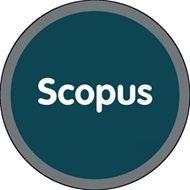Enhancing the Effectiveness of the Zakat Management System to Reduce Taxable Income for Muslim Communities in East Java
DOI:
https://doi.org/10.30631/alrisalah.v21i2.821Keywords:
Zakat, Tax, IncomeAbstract
In Muslim communities of East Java, taxpayers lack knowledge about the management, regulation, and calculation of zakat as a tax deduction. This gap in understanding impedes effective use of zakat funds for community improvement. Therefore, this study aimed to find out the challenges faced in implementing zakat management as a deduction from taxable income of Muslim communities in East Java and propose how to tackle them. A qualitative approach was used, focusing on analyzing phenomena in their natural setting. To get a comprehensive analysis of phenomenology related to the zakat management mechanism, data collection techniques, including observation, interviews, and documentation, were used. The results showed that the management of zakat as a deduction from taxable income involves zakat through official organizations recognized by the Government, including BAZNAS (National Board of Zakat) and LAZ (Zakat Collection and Distribution Organizations). Once the muzakki fulfill their tax obligations, they receive a zakat Payment Receipt (BSZ) that can be attached to the Tax return (SPT) when paying taxes. As a result, the taxable income is directly reduced by the actual amount of zakat paid, which can lead to tax savings. Low awareness of zakat payment, reluctance to pay zakat, and lack of complete trust in BAZNAS and LAZ organizations were the challenges encountered in implementing zakat deductions. Other challenges include a limited number of BAZNAS/LAZ organizations that are recognized by the government, insufficient socialization and education on Law No. 23 of 2011 regarding zakat management, less significant tax reduction, and differences in interpretation when calculating the deduction of taxable income on zakat income.
Downloads
References
Journals
Febriyanti, Novi. “The Review of Islamic Law on the Distribution of Zakat Directly by Muzaki to Mustahik in the Sunan Ampel Religious Tourism Area in Surabaya.” IQTISHADUNA, 11(2), (2020), 55–69.
Wildana, Muhammad Dandy Alif, Asfi Manzilati. “Hablum minallah dan Hablum minannas dari Zakat.” Jurnal Ilmiah Mahasiswa FEB Universitas Brawijaya, Vol. 2 No. 2, (2018), 47.
Books
Arikunto, Suharsimi. Prosedur Penelitian: Suatu Pendekatan Praktik. Jakarta: Rhineka Cipta, 2010.
Asnaini. Zakat Produktif dalam Perpektif Hukum Islam. Yogyakarta: Pustaka Pelajar, 2018.
Bank Indonesia. Pengelolaan Zakat yang Efektif: Konsep dan Praktik di Beberapa Negara. Jakarta: Departemen Ekonomi dan Keuangan Syariah, 2016
Beik, Irfan Syauqi & C. Pratama, “Analisis Pengaruh Zakat Terhadap Penurunan Tingkat Kemiskinan dan Peningkatan Kesejahteraan Mustahik Berdasarkan Model CIBEST.” In Irfan Syauqi Beik dan Laily Dwi Arsyianti, Ekonomi Pembangunan Syariah. Jakarta: Rajawali Press, 2016.
IMZ. Indonesia Zakat dan Development Report Menggagas Arsitektur Zakat Indonesia: Sinergi Pemerintah dan Masyarakat Sipil Dalam Pengelolaan Zakat Nasional. Jakarta: IMZ, 2010.
Karim, Adiwarman Azwar. Sejarah Pemikiran Ekonomi Islam. Jakarta: Rajawali Pers, 2016.
Mardiasmo. Perpajakan. New Edition. Yogyakarta: ANDI, 2018.
Priantara, Diaz. Perpajakan Indonesia. Jakarta: Mitra Wacana Media, 2016.
Rahayu, Puji. Perpajakan. Sidoarjo: Indomedia Pustaka, 2019.
Laws and Regulations
Government Regulation Number 60 of 2010 concerning Zakat or Obligatory Religious Contributions which may be deducted from gross income.
Law Number 23 of 2011 concerning Management of Zakat.
Law Number 36 of 2008 concerning Income Tax.
Regulation of the Minister of Finance of the Republic of Indonesia Number 101/PMK.010/2016 concerning Non-Taxable Income (PTKP).
The 1945 Law concerning Tax Collection, Article 23 paragraph (2) letter (a).
Theses
Febriyanti, Novi. “Mekanisme pengelolaan zakat sebagai pengurang penghasilan kena pajak masyarakat muslim di Kementerian Agama Kantor Wilayah Provinsi Jawa Timur.” Master Thesis. UIN Sunan Ampel Surabaya, 2020.
Websites
BPS. “Persentase Penduduk Miskin di Jawa Timur 2017.” http://www.bps.go.id/, accesed on September 01, 2019.
BPS. “Penduduk Menurut Wilayah Jawa Timur dan Agama yang dianut.” https://jatim.bps.go.id/dynamictable/2017/10/09/120/jumlah-penduduk-menurut-kabupaten-kotadan-agama-yang-dianut-di-provinsi-jawa-timur-2017.html, accesed on September 01, 2019.
Interviews
H. Wahyudi, Zakat Empowerment Staff, Interview, Sidoarjo, February 28, 2020.
M. Amir Sholehuddin, Head of Islamic Information, Zakat and Endowment Division, Interview, Sidoarjo, February 18 , 2020.
Downloads
Published
How to Cite
Issue
Section
License
Copyright (c) 2021 Novi Febriyanti

This work is licensed under a Creative Commons Attribution-ShareAlike 4.0 International License.

This work is licensed under a Creative Commons Attribution-ShareAlike 4.0 International License.












